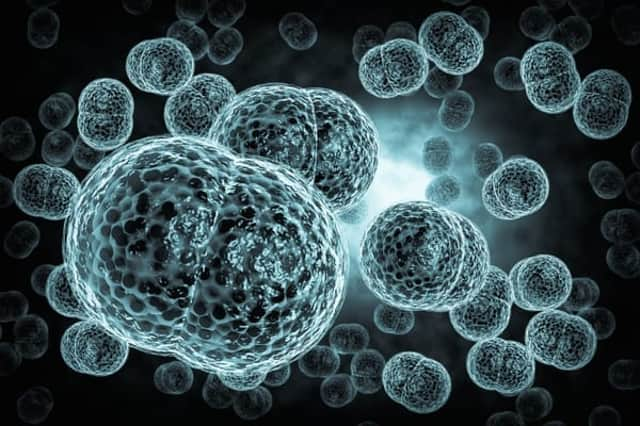These are the common signs and symptoms of meningitis you need to know about


Meningitis is a serious infection of the membranes that surround the brain and spinal cord.
Although it can affect anyone, it is most common in babies, young children, teenagers and young adults.
Advertisement
Hide AdAdvertisement
Hide AdBut what causes meningitis and what are the common signs and symptoms?


What is meningitis?
Meningitis is an infection of the protective membranes that surround the brain and spinal cord, known as meninges.
Meningitis can cause life-threatening blood poisoning, known as septicaemia, and result in permanent damage to the brain or nerves.
What causes meningitis?
Meningitis is usually caused by a bacterial or viral infection. Bacterial meningitis is rarer than viral meningitis but it is also more serious.
Infections that cause meningitis can be spread through:
Advertisement
Hide AdAdvertisement
Hide Adsneezingcoughingkissingsharing utensils, cutlery and toothbrushes
The NHS explains that “meningitis is usually caught from people who carry these viruses or bacteria in their nose or throat but are not ill themselves.
“It can also be caught from someone with meningitis, but this is less common.”
Viral meningitis will usually get better on its own and rarely causes any long-term problems.
Advertisement
Hide AdAdvertisement
Hide AdMost people with bacterial meningitis who are treated quickly also make a full recovery, but some may be left with serious long-term problems.
There are various vaccinations which offer some protection against certain causes of meningitis (Photo: Shutterstock)
What are the common signs and symptoms of meningitis?
a high temperature (fever) of 38C (100.4F) or abovebeing sicka headachea rash that does not fade when a glass is rolled over it (but this will not always develop)a stiff necka dislike of bright lightsdrowsiness or unresponsivenessfits (seizures)
The NHS notes that these symptoms can appear in any order and that you do not always get all of the symptoms.
Medical help
Advertisement
Hide AdAdvertisement
Hide AdAccording to the NHS, you should get medical advice as soon as possible if you're concerned that you or your child could have meningitis.
Call 999 for an ambulance or go to your nearest A&E department immediately if you think you or your child might be seriously ill.
“Trust your instincts and do not wait until a rash develops,” adds the NHS.
Vaccinations against meningitis
There are various vaccinations which offer some protection against certain causes of meningitis.
These include:
Advertisement
Hide AdAdvertisement
Hide Admeningitis B vaccine – offered to babies aged 8 weeks, followed by a second dose at 16 weeks and a booster at 1 year6-in-1 vaccine – offered to babies at 8, 12 and 16 weeks of agepneumococcal vaccine – offered to babies at 8 weeks, 16 weeks and 1 year oldHib/MenC vaccine – offered to babies at 1 year of ageMMR vaccine – offered to babies at 1 year and a second dose at 3 years and 4 monthsmeningitis ACWY vaccine – offered to teenagers, sixth formers and "fresher" students going to university for the first time
This article originally appeared on our sister site, Yorkshire Evening Post